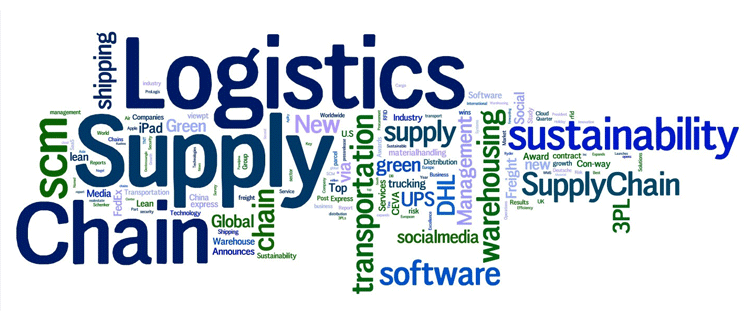The Difference Between Logistics and Supply Chain Management

Most people assume that logistics and Supply Chain Management (SCM) refer to the same process. But as it turns out, the two terms are not interchangeable – and they’re merely different parts of the global flow of finished goods and raw materials.
So, how did the concepts of logistics and Supply Chain Management become so intertwined in their use when they mean very different things? The confusion surrounding the terms might be attributed to the evolution and intersection of the processes – resulting in blurred definitions. Read on for a differentiation of logistics and SCM, and an overview of a cloud-based ERP software that helps streamline both processes.
What is Logistics?
Logistics is the process of coordinating when and how goods are transported and stored until they reach the end customer – it’s a component of the supply chain. It typically involves one organization aiming to ensure customer satisfaction. Simply put, logistics is “having the right item – in the right quantity – at the right time – at the right place – for the right price – in the right condition – to the right customer.”
The process covers activities such as obtaining raw materials, storing, handling, transporting, fulfilling orders, packaging, managing stock, routing, warehousing, and maintaining a demand-supply equilibrium. Logistics management is further divided into two categories, as shown below:
- Inbound Logistics: This is the movement of raw materials and goods from a supplier to the company.
- Outbound Logistics: Outbound logistics basically refers to the movement of finished goods to the customer or end-user.
What is Supply Chain Management?
SCM is the comprehensive coordination of interconnected activities such as transportation, location, inventory, and production among participating organizations in a supply chain. The aim of Supply Chain Management is to produce services or goods that meet consumer requirements and offer the best value – i.e., a competitive advantage. It’s the outcome of multiple organizations, such as consumers, wholesalers, retailers, manufacturers, or suppliers working together towards a common goal. SCM activities include; inventory management, logistics, sales, CRM & customer service, production, procurement, and distribution, to name a few.
What are the Key Differences?
- SCM takes into account individualized issues, questions, and processes that impact the product, while logistics focuses on the storage & movement of goods.
- The main focus of logistics is satisfying and meeting the needs of consumers. Supply Chain Management is geared towards gaining competitive advantage in the market, and managing inventory processes.
- Supply Chain Management involves multiple organizations, while logistics is a one-organization process.
- Logistics is merely an activity within SCM.
What Type of Supply Chain Management should I use?
In the real world, every business has to deal with logistics and Supply Chain Management. The challenge arises when growth is inevitable, and the business struggles with scaling. How does an enterprise meet the increased consumer demand, reduce spoilage, and minimize storage costs? The increased complexity calls for effective and sophisticated tools, such as Kechie’s Supply Chain Management, which includes the essential, Kechie Logistics module. This solution is designed to streamline your supply chain processes, while managing your logistics – warehousing, packaging, & other inventory processes, seamlessly in one, easy to use, solution developed for growing businesses.

